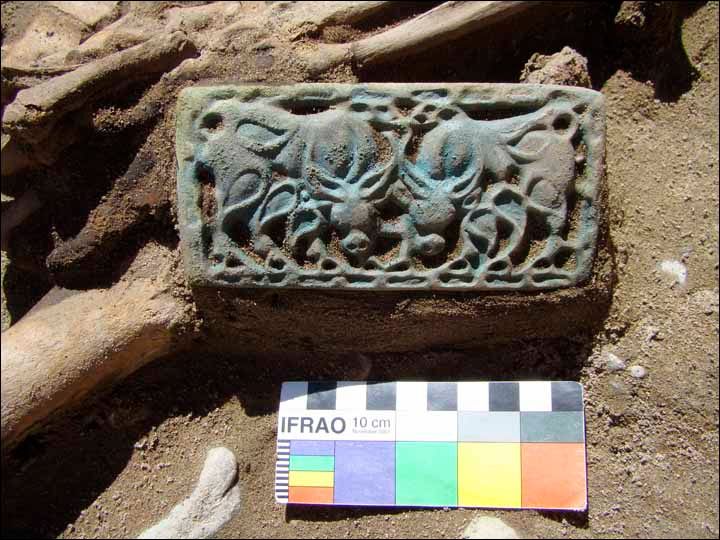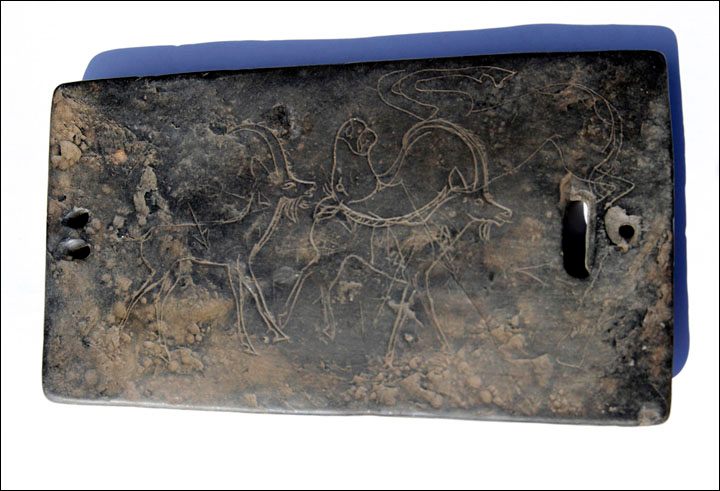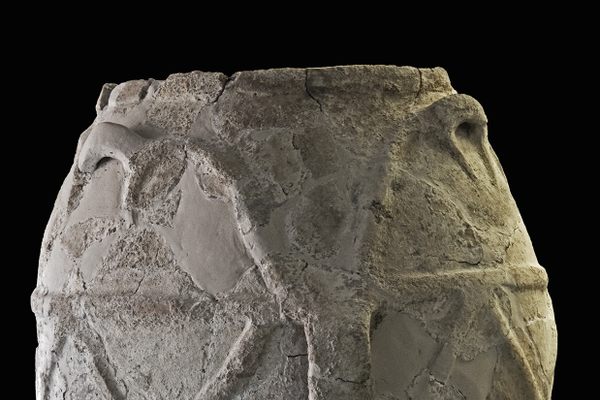Found: The Elaborate Coal Belt Buckles of First-Century Women Warriors
Only 10 examples of these type of accessories are known in the world.

In a remote part of Russia, near the border with Mongolia, an archaeological investigation has been excavating the graves of Xiongnu people, a nomadic group who lived in what’s now the Tuva Republic from about the 3rd century B.C. to the 1st century A.D. Some of the most striking finds have been in the graves of Xiongnu women, who were buried with fantastic belt buckles made of coal, jewels, and bronze, The Siberian Times reports.
The belt buckles are decorated with depictions of animals from fictional dragons to panthers, yaks, camels, and snakes.

The coal buckles in particular are very rare. Marina Kilunovskaya, the archaeologist leading the project for the Russian Academy of Sciences’ Institute for the History of Material Culture, told The Siberian Times that there are only 10 known examples of these types of belt buckles. Kilunovskaya worked with the archaeologist Pavel Leus, a specialist of the Xiongnu period.
Xiongnu is a Chinese term from that period for nomadic, invading groups seen as a threat to China. In the period that these burials date to, a coalition of nomadic tribes from Central Asia were encroaching on Chinese territory. Chinese sources note that Xiongnu women fought alongside men, and the archaeological evidence backs that up. As Foreign Affairs reports, in at least 300 burials found across Asia, the remains of women show signs that they fought in battle. At least a quarter of the women found buried with weapons were active warriors. Both men and women wore elaborate belt buckles, decorated with animals both imaginary and real.

Excavations at this site, supported by The Society for the Exploration of Eurasia, began in 2015 and are still ongoing. The same area has many burials from the Scythian era, starting in the 2nd century B.C., through the Middle Ages.











Follow us on Twitter to get the latest on the world's hidden wonders.
Like us on Facebook to get the latest on the world's hidden wonders.
Follow us on Twitter Like us on Facebook